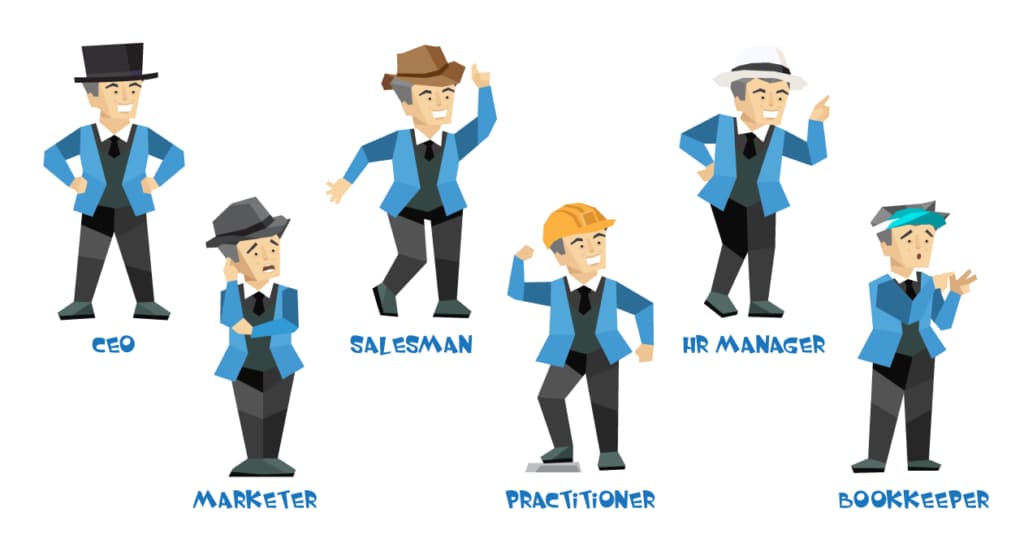Those smoke signals coming from your HR department in 2020 might have been a cry for help during the COVID-19 pandemic or the staff simply burning the company HR handbook. Rest assured your HR handbook is still needed, maybe more than ever in uncertain times, but since March the coronavirus crisis has made a mockery out of “by the book”.
The best HR policies in 2020 were likely found on digital whiteboards and not in binders, because overnight HR had to embrace a new normal which included remote recruiting and onboarding for almost all nonessential workers.
While a post-pandemic world looks closer as COVID-19 vaccines roll out, many of the HR changes are here to stay as it appears unlikely that the U.S. workforce will entirely make it back to their offices in 2021.
PWC surveyed executives and found that 55 percent expect to offer at least a hybrid option of in-person and remote work when COVID-19 abates. Google has already told its staff that when they return in September 2021 to expect a flexible workweek split between the office and home.
Many HR leaders expect that in a non-pandemic world remote recruiting and onboarding will likely be the norm.
Video May Have Killed the In-Person Interview
The breakout HR star from the pandemic may be the  recruiting video interview which has replaced the traditional in-person interview process. Companies have embraced the flexibility and agility of the video interview which can streamline the hiring process, saving time and resources.
recruiting video interview which has replaced the traditional in-person interview process. Companies have embraced the flexibility and agility of the video interview which can streamline the hiring process, saving time and resources.
“Video is not the entire interview process,” said Tom Connolly, CEO of GattiHR in a toolbox.com article. “Use it well, with more structure and hiring team coordination, and use it creatively, with one-way interviews, group interviews, and candidate presentations. Augment with online assessments as this can round out the interview picture and make up for what you lose by not being face-to-face.”
To make video interviews work, keep in mind the following:
- Work with hiring managers to develop effective screening questions.
- Provide training to hiring manager on remote recruiting etiquette and best practices.
- Utilize software built for remote recruiting. (Yes, Zoom can work in a pinch, but you will have better results when using dedicated remote hiring applications).
- Work with applicants to provide them with remote recruiting etiquette and best practices. This can prevent your company from missing out on a quality hire based on a poor remote video interview.
It’s a 2-Way Digital Street: Market Your Company to Recruits
In a digital recruiting world, your company must try to market itself to potential candidates. Utilize social media and other platforms to explain what your “employee value proposition” is.
Kelly Ann Doherty explains in Forbes that your company can highlight the following to attract potential candidates:
- Share images of team-building activities
- Encourage your teams to share stories
- Highlight how your teams collaborate in remote work environments
- Post employee reactions to your company’s unique benefits
Spotlighting your company’s culture on social media, especially on personal channels, is a great way to introduce your company to future employees.
Support New Hires and Managers During Remote Recruiting and Onboarding
For many new hires and managers, even seasoned veterans, remote recruiting and onboarding may be a new experience, so they need to be fully supported throughout the process.
HR can help with the following:
- Ensure managers have the proper tools to conduct interviews including effective screening questions.
- Provide training to managers and possible hires on remote interview basics.
- Keep new hires updated on materials and resources they will need prior to their first day.
- Train managers on what is expected of them in the digital onboarding of new hires.
First impressions are always important, and your onboarding is your company’s first impression to the new hire. A smooth digital onboarding can help with employee retention.
“As remote work becomes the new norm, creating a smooth hiring and onboarding process for new hires will be key,” wrote Doherty in Forbes .
Employer Flexible is here to answer your remote recruiting and onboarding questions. Contact us today to find out how our stress-free HR services can benefit your Texas-based business.






